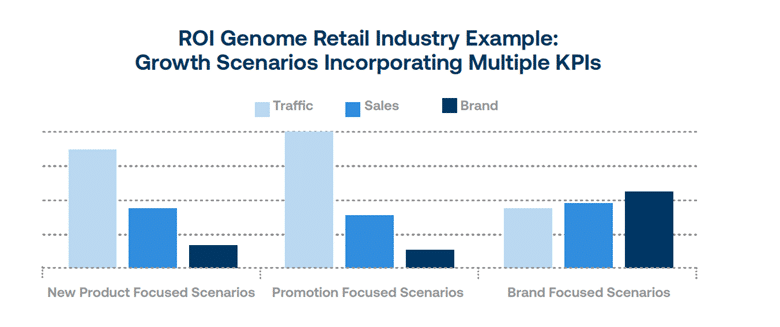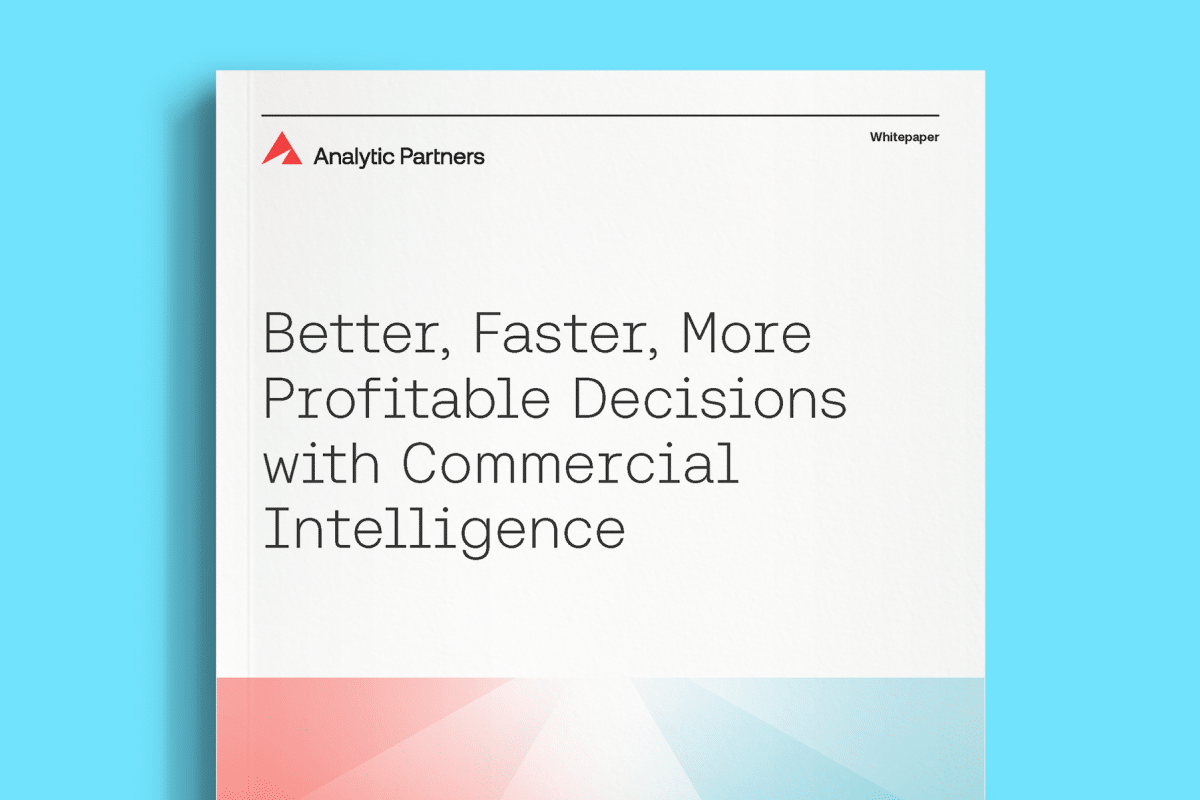With the new year come new business goals, and as 2020 winds down, many business leaders are reconsidering strategies and objectives on a massive scale. Regardless of industry, now is the time start taking actionable steps toward success. But turning ideas into action can be deceptively challenging. Broad-stroke goals and new KPIs popping up left and right after a highly disruptive year can create a disparity between high-level leaders and practitioners that is tough to bridge.
At Analytic Partners, we believe that data and insights should be used as a guiding light for brands when choosing which goals and KPIs actually matter. To understand what that means in practice, we’re taking a deeper dive.
Which Came First, the Goal or the KPI?
It’s challenging to set a goal and create a plan for success without factors to measure against. Goals and KPIs go hand-in-hand, but if a goal can’t be associated with specific criteria for success, it isn’t a goal so much as it is a vision. In any conversation about goal setting, the conversation about which KPIs will indicate success should be had simultaneously. We always recommend a balance of KPIs, and each one should be tied back directly to the performance drivers of your business. In other words, they should be set based on data-driven decisions and goals, not gut feelings or assumptions about what measurements matter.
KPI Measurement in Action
When looking at long-term goals, scenario planning is critical for business leaders – our ROI Genome shows that companies that adopt data-driven simulations and incorporate them into their planning process drive at least 5x the growth versus those that don’t. A key piece of the scenario-planning puzzle: KPIs.
This is where having the right number of relevant KPIs comes into play. For example, looking at only one KPI may limit the actionable insight from the simulations, so incorporating an additional KPI within simulations is often recommended to capture the consumer and product dynamics that will influence performance. For example, while sales is a strong performance metric, traffic provides additional insight into customer dynamics and the role of marketing. Marketing factors may drive customers to a site or store, but product assortment, and customer experience may be what drives them to make or expand their purchase.
It’s not only about short-term impact and the KPIs that indicate success therein, but also the long-term impact of decisioning. Understanding how actions that drive short term growth may have negative implications in the long term is critical for sustainable and balanced growth. Business leaders should set goals with eyes wide open, knowing that there may be areas that require a large investment and potentially decreased efficiencies in the short term that will ultimately pay off in the long term.
The approach of leveraging multiple KPIs allows businesses to balance these dynamics by intentionally incorporating short term KPI metrics that can serve as leading indicators for the long term.
In one retail example, scenarios were assessed based on their impact across three KPIs: traffic, sales and brand. Brand-focused scenarios had a more balanced impact across KPIs, while promotional-focused scenarios had a stronger impact on traffic and sales. These kinds of scenario results can act as a guiding hand for leaders and should be considered cross-functionally alongside strategic goals and objectives for the business to be best implemented.

Source: Analytic Partners ROI Genome Marketing Intelligence Report, Insights to Accelerate Growth: Scenario Plan for Future Success, August 2020
Choose Wisely
Armed with clarity and data-driven reasoning behind which KPIs matter for each goal, and why, the bridge between high-level goal setting practices and ultimate measurement will become easier to cross. A solid measurement framework, like the multi-dimensional Commercial Mix Analytics, can balance these multiple KPIS,
While the approach will take longer in terms of set up and framework, it will ultimately pay off for business leaders and teams willing to put in the time and find the right KPIs for measuring success.
Let's transform your business.
Analytic Partners can help your business evolve.





